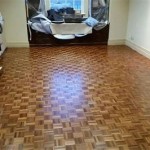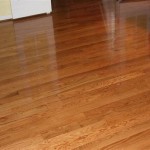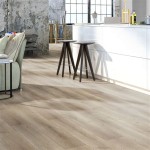What Is The Best Vinyl Plank Flooring Thickness?
Vinyl plank flooring is a popular choice for homeowners and businesses alike. It is durable, easy to clean, and comes in a wide variety of styles. One of the most important factors to consider when choosing vinyl plank flooring is the thickness. The thickness of the planks will affect the durability, comfort, and cost of the flooring.
Thicker planks are more durable. They are less likely to be scratched or dented, and they can withstand more wear and tear. This makes them a good choice for high-traffic areas, such as kitchens, hallways, and entryways. Thicker planks are also more comfortable to walk on. They provide a more cushioned feel underfoot, which can be beneficial for people who spend a lot of time standing or walking.
However, thicker planks are also more expensive. They require more material to produce, and they are more difficult to install. If you are on a budget, you may want to consider thinner planks. Thinner planks are not as durable as thicker planks, but they are still a good choice for low-traffic areas, such as bedrooms and guest rooms.
The best vinyl plank flooring thickness for you will depend on your individual needs and budget. If you are looking for the most durable and comfortable flooring, you should choose thicker planks. If you are on a budget, you may want to consider thinner planks.
Here is a general guide to the different thicknesses of vinyl plank flooring:
- 2mm to 3mm: This is the thinnest type of vinyl plank flooring. It is less durable than thicker planks, but it is also less expensive. This thickness is best suited for low-traffic areas, such as bedrooms and guest rooms.
- 4mm to 5mm: This is a medium-thickness vinyl plank flooring. It is more durable than thinner planks, but it is also more expensive. This thickness is a good choice for moderate-traffic areas, such as living rooms and dining rooms.
- 6mm to 8mm: This is the thickest type of vinyl plank flooring. It is the most durable and comfortable, but it is also the most expensive. This thickness is best suited for high-traffic areas, such as kitchens, hallways, and entryways.
When choosing the thickness of your vinyl plank flooring, it is important to consider the following factors:
- The amount of traffic the floor will receive. If you have a high-traffic area, you will need to choose a thicker plank.
- The type of subfloor you have. If you have a concrete subfloor, you can use a thinner plank. If you have a wooden subfloor, you will need to use a thicker plank.
- Your budget. Thicker planks are more expensive than thinner planks.
Once you have considered these factors, you can choose the best vinyl plank flooring thickness for your needs.

Luxury Vinyl Flooring Lvt And Lvp Thickness Guide Wood Beyond Blog

Best Thickness For Your New Luxury Vinyl Plank Flooring

Vinyl Plank Wear Layers What Does A Layer Do Reallyfloors America S Est Hardwood Flooring

3 Ways To Choose Vinyl Plank Flooring Wikihow

3mm Vinyl Planks Vs 5mm Singapore Laminate Flooring

The Ultimate Guide To 6mm Luxury Vinyl Flooring Wood And Beyond Blog

Vinyl Plank Vs Laminate Flooring Which Is Right For You Onflooring

Flooring Thickness Guide What Is The Best Vinyl Lx Hausys

3 Ways To Choose Vinyl Plank Flooring Wikihow

What Thickness Of Vinyl Flooring Is Best The Guys
See Also







